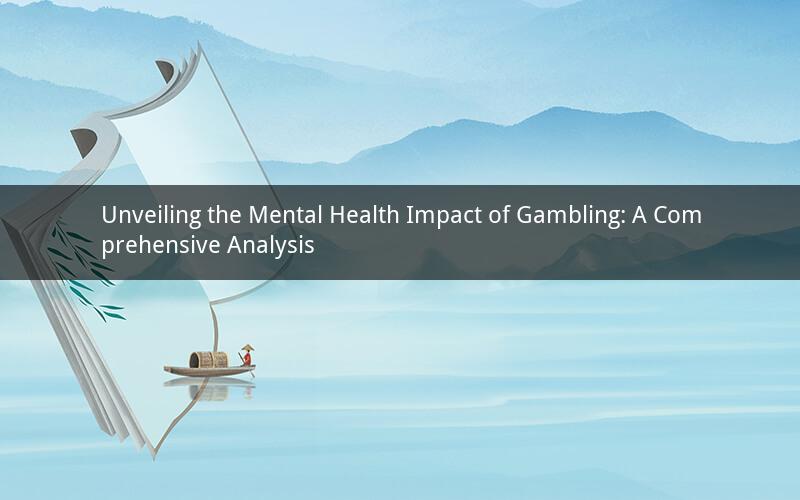
Introduction:
Gambling has long been a popular form of entertainment, but its effects on mental health have been a topic of concern. This article delves into the various ways in which gambling can impact mental well-being, exploring both the positive and negative aspects. By understanding these effects, individuals can make informed decisions and seek appropriate support if needed.
1. The Thrill of Risk and the Risk of Addiction:
Gambling often appeals to individuals seeking excitement and the thrill of taking risks. However, this same excitement can lead to addiction, which can have severe mental health consequences. The allure of winning big and the fear of missing out can drive individuals to engage in excessive gambling behavior, leading to financial and emotional distress.
2. Financial Stress and Anxiety:
One of the primary concerns regarding gambling is the potential for financial stress. When individuals become overly involved in gambling, they may experience significant financial losses, leading to anxiety, depression, and even suicidal thoughts. The fear of losing money and the pressure to recoup losses can create a cycle of stress and anxiety that can be detrimental to mental health.
3. Cognitive Impairment and Decision-Making:
Gambling can also impact cognitive functions, particularly decision-making abilities. The allure of immediate rewards and the seductive nature of gambling can impair an individual's ability to think critically and make rational decisions. This can lead to poor financial choices, strained relationships, and a decline in overall mental well-being.
4. Social and Interpersonal Consequences:
Gambling addiction can have a significant impact on an individual's social and interpersonal relationships. The excessive time spent on gambling activities can lead to neglect of personal relationships, strained family dynamics, and a loss of social connections. The secrecy and shame associated with gambling addiction can further isolate individuals, exacerbating feelings of loneliness and depression.
5. Treatment and Support:
Recognizing the negative impact of gambling on mental health is the first step towards seeking help. Treatment options for gambling addiction include therapy, counseling, and support groups. Cognitive-behavioral therapy (CBT) has been found to be particularly effective in addressing the underlying issues that contribute to gambling addiction. Additionally, support from family, friends, and support groups can provide individuals with the necessary encouragement and guidance to overcome their addiction.
Questions and Answers:
1. How can gambling addiction be identified?
Gambling addiction can be identified through signs such as preoccupation with gambling, increased frequency and duration of gambling sessions, inability to control gambling behavior, neglect of responsibilities, and experiencing negative consequences as a result of gambling.
2. Can gambling addiction be treated?
Yes, gambling addiction can be treated. Treatment options include therapy, counseling, support groups, and in some cases, medication. The effectiveness of treatment may vary depending on the individual, but with proper support and intervention, recovery is possible.
3. Are there any long-term effects of gambling addiction on mental health?
Yes, gambling addiction can have long-term effects on mental health. These may include depression, anxiety, substance abuse, relationship problems, and a decline in overall well-being. It is important to seek treatment and support to mitigate these negative effects.
4. Can gambling addiction be prevented?
Preventing gambling addiction involves understanding the risks and being aware of personal vulnerabilities. Setting limits on gambling activities, avoiding high-risk environments, and seeking support from family and friends can help prevent the development of gambling addiction.
5. How can individuals seek help for gambling addiction?
Individuals seeking help for gambling addiction can start by reaching out to a therapist or counselor specializing in addiction. They can also join support groups such as Gamblers Anonymous or seek assistance from organizations dedicated to gambling addiction recovery. It is important to remember that seeking help is a courageous step towards improving mental health and breaking free from the cycle of addiction.